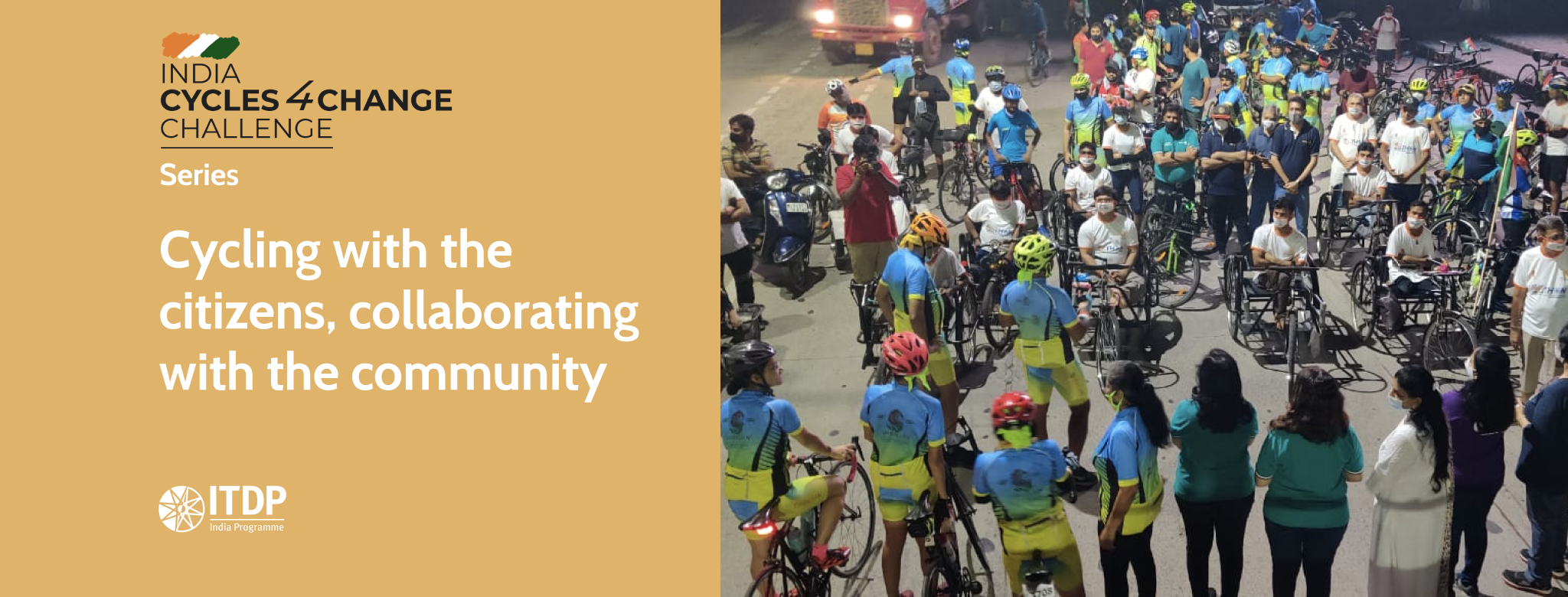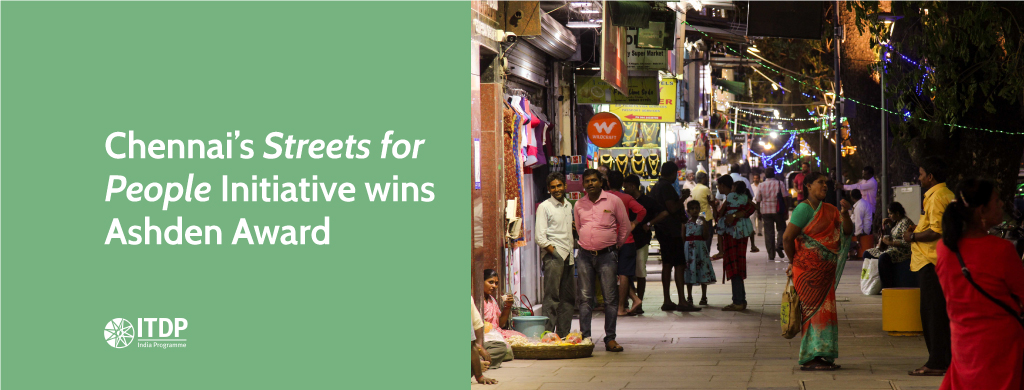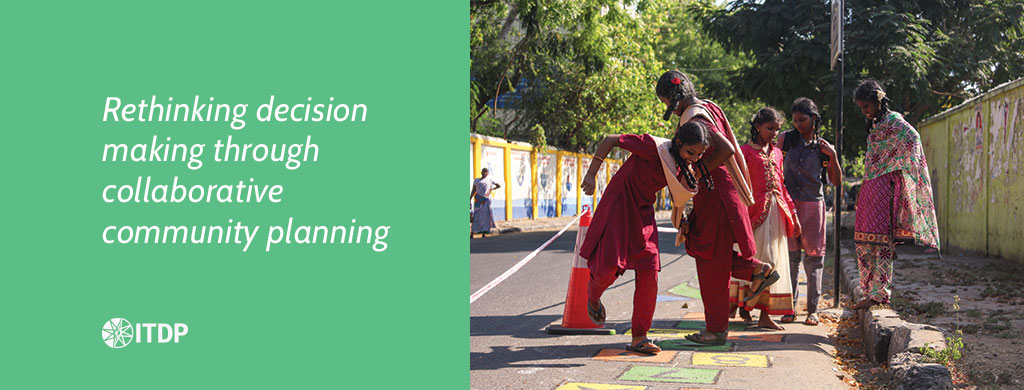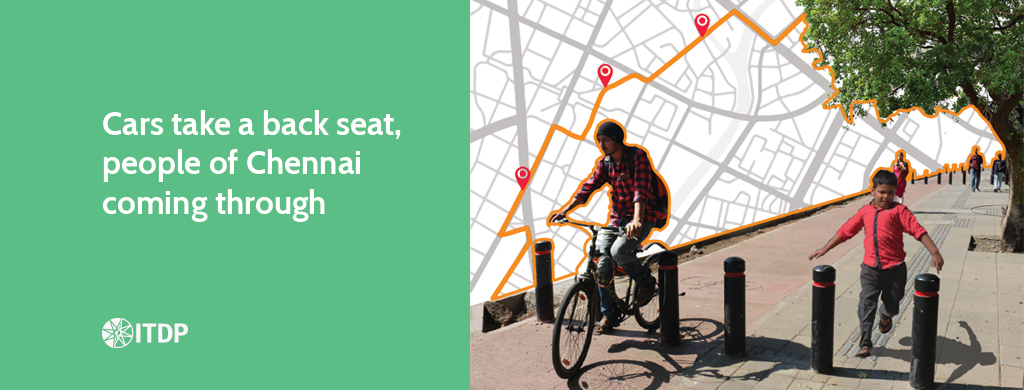Cover image source: Ahmedabad
India’s journey with the India Cycles4Change Challenge
The Smart Cities Mission, Ministry of Housing and Urban Affairs (MoHUA) launched the India Cycles4Change Challenge in partnership with the Fit India Mission, Swachh Bharat Mission, and the ITDP India Programme to inspire cities to implement quick cycling-friendly interventions in the wake of COVID-19. The Challenge is gaining momentum with the 107 registered cities—including all 100 Smart Cities—pedalling their way forward in the first stage of the initiative. The ITDP India Programme, as the knowledge partner for the Challenge, successfully conducted three online workshops to give cities remote guidance on planning and implementation of cycling interventions, communications and outreach, and community engagement strategies.

The India Cycles4Change Challenge encourages cities to use stakeholder engagement and community participation strategies to involve people in the decision-making process. Over 2000 citizens and civil society organisations (CSOs) have registered so far to support their cities in the Challenge. Local cycle groups, corporates, and NGOs have also joined hands with cities in this cycling transformation. The participating cities have shown great enthusiasm and organised a range of innovative events, initiated cycling-friendly interventions, and employed creative branding strategies to win people’s support and get cycles back on the streets.
Kick-starting the Cycle of Change
The ITDP India Programme is the knowledge partner for the India Cycles4Change Challenge, helping cities implement their vision of cycle-friendly streets by building capacity through regular interactive online workshops. The broad range of topics covered in the three online workshops thus far include ‘Planning Cycling Networks’, ‘Conducting Perception Surveys’, ‘Engaging with Citizens’, ‘Dos and Don’ts: Designing streets for cycling’, and ‘Building momentum for cycling’. Each workshop comprised expert discussions, technical presentations from the team at the ITDP India Programme, and peer learning sessions through panel discussions with representatives from various participating cities.
Speaking at the first workshop session conducted on 22 July 2020, Shreya Gadepalli, South Asia Programme Lead, ITDP, highlighted safety, continuity, comfort, personal security, and access to all as the key principles for creating cycling-friendly cities. She encouraged the cities to strive towards making these a reality through collaborative processes with citizens as partners.

Frontrunners such as Coimbatore, New Town (Kolkata), Chandigarh, Kohima, Surat, Bangalore, Aizawl, Nagpur, and Rajkot shared their experiences and learnings from implementing cycling initiatives in the past and the present. The diverse strategies used for citizen engagement shed light on the importance and possibilities of collaborative planning.

Consultations, Campaigns, Cycle camps and clinics, and more!
Several cities have conducted regular brainstorming and consultation sessions with diverse stakeholders with an objective to build a unified vision for communication, outreach, and planning. More than 40 cities have formed core working teams with participation from citizens, experts, CSOs, corporates, and non-governmental organisations among others. The cities have made attempts to prioritise inclusivity in decision-making by ensuring representation from women and other social groups in their teams.
The cities are actively conducting outreach using social media platforms to share information about their progress and connect with citizens for public consultations. These efforts are being complemented with regular interaction with the print media, the use of banners, and localised campaign drives.

Cities also launched a national ‘Cycle2Freedom’ campaign on 15 August 2020 to further deepen the partnership with their citizens vis-à-vis the challenge. Anchored to the nation-wide Independence Day celebrations, the campaign encouraged people to share stories on how cycles have empowered them, and given them freedom, along with their initial experiences with cycling. The ‘SheCycles4Change’ initiative was also launched as an integral part of the ‘Cycle2Freedom’ campaign to emphasise cycling as a safe and accessible option for women.
Stories from cities as part of the ‘Cycle2Freedom’ campaign
Cities also kick-started various cycling-friendly initiatives. In New Town (Kolkata), cycling training camps attracted commuters, especially women and children to pick up cycling as an independent mode of travel. Kohima launched free bike repair clinics to help citizens fix their cycles and get onto the streets. Faridabad tested out a pop-up cycle lane along one of its prime industrial corridors. Cities including Nagpur, Surat, Agartala, and Ahmedabad initiated active conversations with citizens through on-ground rallies and virtual consultations.
Cycling-friendly initiatives from cities
Cities across the country have displayed utmost creativity and contextual diversity with their events, interventions, and strategies. The ITDP India Programme is playing a pivotal role by sharing detailed guidance, resources, and templates for the successful realisation of the unified vision of creating cycling-friendly cities. The cities are well on the way to creating successful pilot interventions!
Are you a cycling enthusiast?
Fix your cycle and get on to the street! The cities are geared up to TEST-LEARN-SCALE!
If you are a civil society organisation, consultant, corporate or concerned citizen eager to support your city in the India Cycles4Change Challenge, register here – https://bit.ly/30L0vnd
This article is part of a series of articles on the India Cycles4Change Challenge.
Read Part 1 in the series on the Launch of the India Cycles4Change Challenge
Read Part 2 in the series on 10 ways you can make India a cycling nation
Written by Balanagendran
Edited by Avishek Jha and Aditi Subramanian



















































